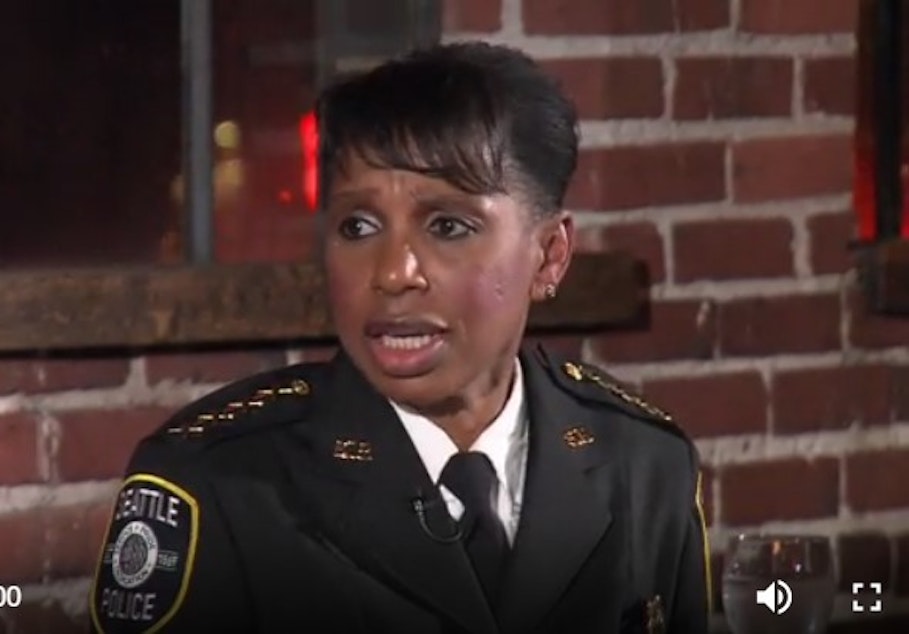Arrests are up as police work to address crime and disorder, SPD chief says

Responding to the outcry over reports on prolific criminal offenders in Seattle, Seattle Police Chief Carmen Best said people upset about crime and addiction should keep in mind that violent crime here has decreased dramatically since the '80s.
She and King County Sheriff Mitzi Johanknecht spoke Wednesday at the Seattle Channel’s Civic Cocktail in downtown Seattle. “We can’t police our way out of this,” Johanknecht said. “We are a cooperative partner in how we go about bringing an end to homelessness.”
Best said crimes committed by people related to drug addiction or other behavioral crises are simply more visible than they were in years past.
“I think people are just concerned because the landscape admittedly has changed, and it’s much more prevalent and visible than I think it was a few years ago,” she said.
Best said police are working hard to address those crimes.
“We’re not going to arrest people because they’re homeless," Best said. "We will arrest people for criminal activity. And by the way I would say last year we made just under 11,000 arrests – more than they did in 2017 and much more than they did in 2016.”
She said officers have also referred thousands of people to treatment and other services.
Best said that the Seattle Police Department is also working to comply with the will of the voters who approved Initiative 940. That initiative includes a requirement for independent investigations when someone dies at the hands of the police. Best noted that the state is still establishing formal rules for those investigations.
In the meantime, Best asked the Washington State Patrol to investigate the death of Iosia Faletogo, who was killed by police on New Year’s Eve after running from a traffic stop. Police video suggests Faletogo was carrying a handgun. Best said that investigation is still ongoing.
For other cases, Best said Seattle has a reciprocal agreement with the Bellevue Police Department and the King County Sheriff's Office to perform investigations.
“We’ll have outside people, outside agencies, looking at our investigations and if they have the same thing, we’ll look at theirs,” she said. “Because we really want to make sure that we’re in the spirit of what people want, until we have more firm rules.”
Seattle is seeking these investigations even though it is technically exempted from the requirement for the duration of its federal consent decree. That federal oversight is expected to continue for at least the next year.




